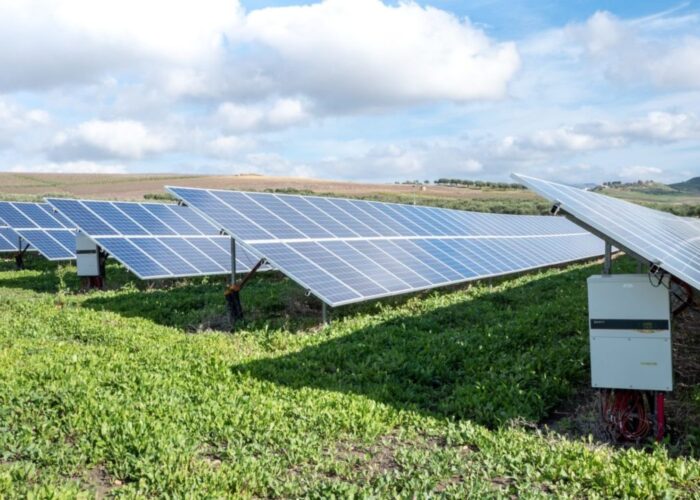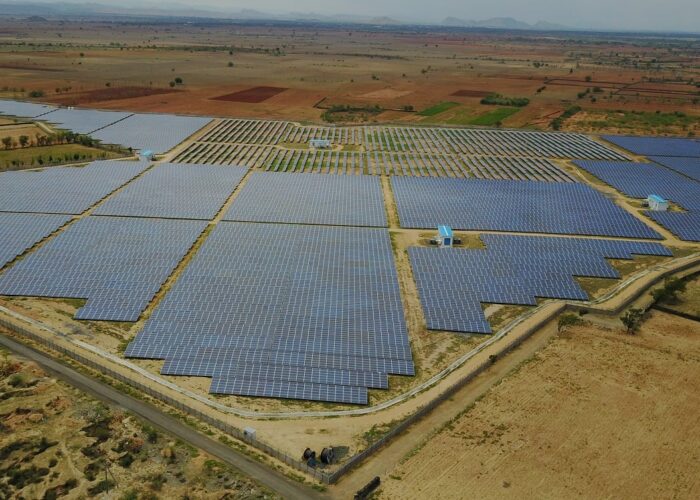
An auction carried out under Karnataka's 860MW solar tender has seen a recalibration of tariffs in India and a surprising outcome for the lowest tariff.
Awards were made for less capacity than originally tendered by Karnataka Renewable Energy Development (KREDL), which had planned for projects to be split between 43 taluks (subdivisions of a district) with 20MW in each in order to distribute solar capacity evenly across the state. Some 100MW in the local content category failed to draw interested bidders.
Unlock unlimited access for 12 whole months of distinctive global analysis
Photovoltaics International is now included.
- Regular insight and analysis of the industry’s biggest developments
- In-depth interviews with the industry’s leading figures
- Unlimited digital access to the PV Tech Power journal catalogue
- Unlimited digital access to the Photovoltaics International journal catalogue
- Access to more than 1,000 technical papers
- Discounts on Solar Media’s portfolio of events, in-person and virtual
Mudit Jain, consultant at Bridge to India, told PV Tech that one unique feature of the tender was that the offtake was spread across the jurisdictions of five distribution companies (Discoms). Of these, three are A-rated, one as B+ and the last one as B, by the credit rating agencies CARE and ICRA, whose ratings were published by the Ministry of Power.
Jain noted: “Surprisingly, Kudligi Taluk has attracted the lowest tariff of INR2.94/kWh [US$0.046] despite the off-taker being GESCOM, a B-rated entity. Overall out of the seven taluks with winning bids of less than INR3/kWh, only three have off-takers with credit rating A and the rest have rating of either B or B+.”
As expected Category B, which was reserved for local module manufacturers in Karnataka, saw the highest bids in the range of INR 3.52-3.54/kWh, while the open Category A saw winning tariffs of INR 2.94-3.34/kWh. That lowest bid was roughly 20% higher than the winning tariffs of INR2.47/kWh and INR2.44/kWh at the Bhadla solar park in the two previous auctions in Rajasthan.
In an analysis, Ali Imran Naqvi, head of operations at Gensol Engineering, said that the Karnataka bids were “stamped with caution” and appeared to come from “some soul searching and logical recalibration of numbers within the managing chambers of the some of the renowned solar power developers”.
Of course, neither irradiation nor project size in Karnataka matched that of Bhadla, but Naqvi still pointed towards wider difficulties in the sector as a key driver of higher tariffs. These included a 7.5% import duty on modules, the added threat of a heavy Safeguard Duty on imports, and what he called “whimsical pricing” by Chinese modules suppliers.
However, Naqvi also added: “Notwithstanding this, some sort of optimism still seems to have got the better of [developers] and the project managers will have to tame the bull to pull off these projects in green. A quick back-of-the-envelope shows that in order to hammer out equity returns in the range of 11.5%-12.5%, the EPC cost will have to be close to INR35 million/MW for seasonal tracking configuration with around 30% DC overloading. With land and module prices declining to go south, this could appear to be a tight rope walk and there is a very little margin of error.”
Both Acme Solar and Shapoorji Pallonji put in the lowest bids of 2.94 rupees in Kudligi and Jagalur taluks, respectively.
The results for aggregate project awards were as follows:
- Shapoorji 185MW
- Acme 106MW
- ReNew Power 99MW
- Asian Fab Tec 85MW
- Emmvee 80MW
- TEP Rooftop Solar 55MW
- Greenko 45MW
- Ekialde Solar 35MW
- Rays Power Infra 30MW
- Max Planck Solar Farms 20MW
- Svarog 20MW
Naqvi said: “It is interesting to note that Greenko, which recently acquired a major solar portfolio of the fallen SunEdison, who recently shut shop due to its burgeoning financial morass, has also bagged 45 MW in total.”
Only two players, Emmvee and Svarog, participated in the local content Category B. They saw “premium” winning bids coming very close to the ceiling tariff of 3.57 rupees.
Emmvee secured 80MW for which the lowest bid was 3.52 rupees, while Svarog bagged 20MW with a 3.54 tariff.
The tender saw a four-fold oversubscription back in January. At the time, Vinay Rustagi, managing director Bridge to India, told PV Tech that the high levels of capacity being tendered in the state could result in major grid integration challenges going forward. In a market update today, the consultancy also noted that Karnataka will have procured a total of 5,810MW of solar power by 2019, with more open access, rooftop solar and wind to come, while the state's entire power requirment is just 8.7GW.
Meanwhile, Bridge to India has also been saying for some time that Indian tariffs were “overdue a major correction“.
Article updted to include additional comment from Naqvi.







